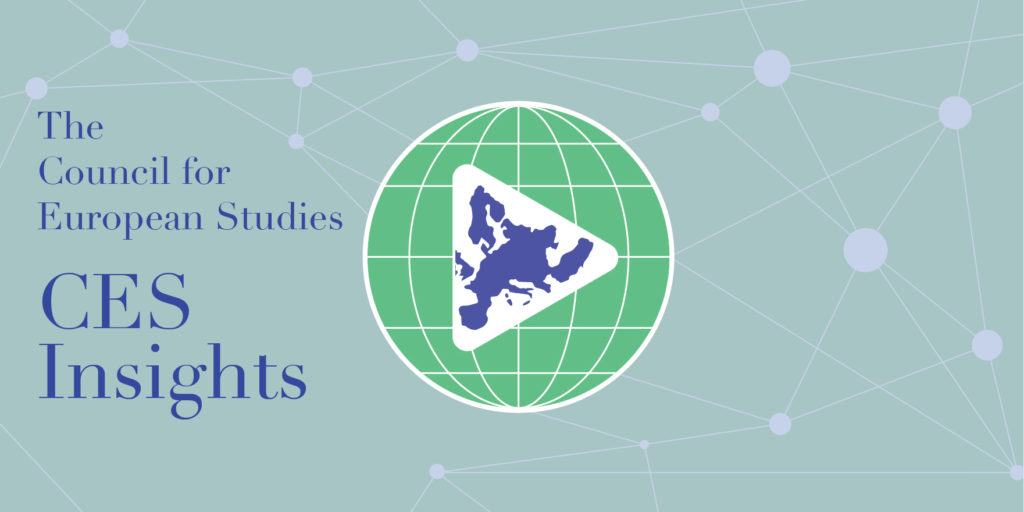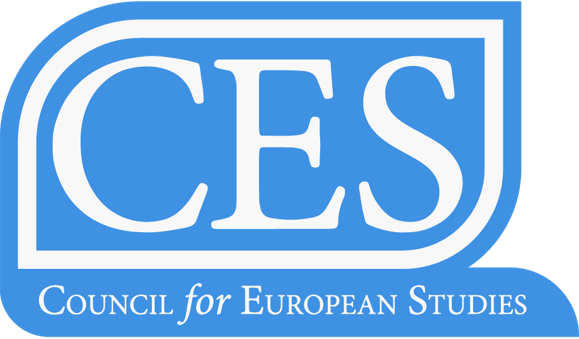
Watch the webinar recording here.
Tuesday, March 30, 2021 10:00 am EDT | 7:00 am PST | 15:00 BST | 16:00 CET
Chair: Evy Vourlides; Moderator: Elizabeth B. Jones; Panelists: Hannes Lorenzen, Tom Burston, and Madeline McKeever
As Europe’s population became increasingly urban, Europeanists have often neglected rural Europe in their scholarship. However, in the European Union alone, close to 45 percent of territories are considered rural, with an even higher percentage in most recent member states. Therefore, European leaders and scholars must not only take these territories into account to create and sustain a European future, but should also consider the “rural” as a resource in solving some of the most pressing issues Europe faces. One entry point into the question of the rural is through the notion of food systems, which encompass a slew of concerns about agriculture science and practice, but also wider debates about social justice, environmental policy, and community building in twenty-first century Europe. Panelists will contribute their practical knowledge about challenges in these areas to inform the European (and global) policymaking arena. Some of the questions asked will address ways in which rural Europe offers valuable templates for building more resilient, prosperous, and sustainable societies, what we have learned in recent decades about the role of food systems in protecting biodiversity, and how the COVID-19 pandemic and accelerating climate change have underscored the need to abandon old ways of doing things.

Evy Vourlides is a PhD Candidate in Sociocultural Anthropology at the George Washington University. Using ethnographic evidence, her dissertation research examines how new forms of sociality and exchange emerge through regenerative design efforts of ecologically-focused communities on mainland Greece—such as ecological building, natural farming, and energy harnessing. These daily design efforts concretize diverse economic and ecological expressions that reside beside capitalism and debt crisis. By highlighting the affordances of interconnected lives and materials, regenerative projects unlock possibilities for abundance under austerity through new social and material configurations. Aside from working on the dissertation, Evy currently teaches an undergraduate qualitative research methods course at GWU. She also serves as the student representative for the Society for the Anthropology of Europe.

Elizabeth B. Jones is a historian of rural Germany and Europe, and recently retired from Colorado State University to focus on volunteer work dedicated to easing hunger and food supply problems in Oregon’s Willamette Valley. Her historical research addressed rural poverty, labor relations, the environment, and nineteenth-century state initiatives to establish new farming communities on marginal lands in Germany’s northwest, or internal colonization. She serves on the Research Editorial Committee at EuropeNow.

Hannes Lorenzen is co-founder and president of the European Agricultural and Rural Convention (ARC2020). From 1985 to 2019, he was senior adviser to the Committee on Agriculture and Rural Development of the European Parliament. He has an MA degree in Development Sociology with a postgraduate degree in International Agriculture (TU Berlin) with special professional competence in international negotiations (EU-Institute for Public Administration, Maastricht) and Mediation (School for Mediation, Steyerberg). He has carried out research, coordination, and evaluation work on rural development projects with the Technical Service of the German Government. On the international level, Hannes Lorenzen is co-founder of Genetic Resources Action International and co-president of the European Rural Development Network Forum Synergies. He is also co-founder of PREPARE, the “Partnership for Rural Europe” network for Central and Eastern European Member States, serving as chairman and president until 2016. Hannes is also board member of IATP (www.IATP.org) Minneapolis, USA. Closer to home, Hannes chairs a local rural development organization on his home island of Pellworm in North Friesland, Germany, which works on organic farming, renewable energy production, organic seed production, soft tourism, and nature protection projects in a local dimension.
Tom Burston is Deputy Director of the Food, Farming and Countryside Commission and helps to lead the organization in its mission to bring people together to find radical and practical ways to transform our food system and improve our climate, nature, health and economy. Tom’s work is driven by his understanding of how real development and sustainable change happens through informed planning and building trusting relationships. Tom brings experience of working with development agencies around the world, embracing different perspectives in order to find shared interest and common cause. When Tom is not working, you will find him in the Northumbrian hills with his wife and their two children. Tom is a huge fan of Northumberland and is vice Chair of Alwinton Border Shepherds’ Show, the north of England’s premier hill-farming show.

Madeline McKeever grew up on a farm in Co Meath in Ireland. She studied botany in Trinity College Dublin, Ireland, completing a MSc in vegetation history in 1984. After some time travelling, including a year apprenticing on an organic farm in Maine, she began farming in West Cork in 1986. The farm in Ardagh was managed as an organic dairy farm from 1987-1999, after which beef cattle and seeds became her main foci. She was a member of the Skibbereen food and farming group, Growing Awareness, that ran conferences on “Genetic Engineering” in 1999 and “The Globalisation of Agriculture” in 2000. The group started the Skibbereen Farmers Market in 2001, where she first began selling seeds. In 2005, the “Brown Envelope Seeds” was registered as a business, and half of the farm was planted in broad-leaved trees. Since then, seed production has been the main source of income on the farm.


